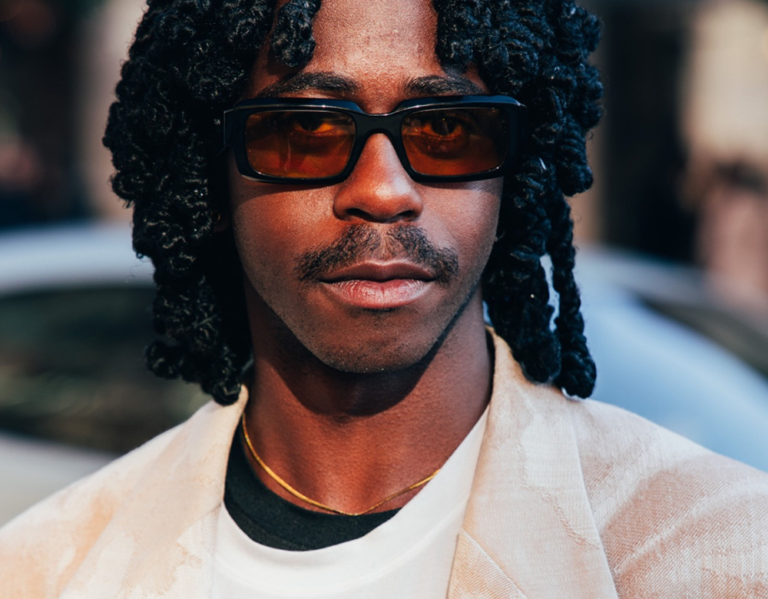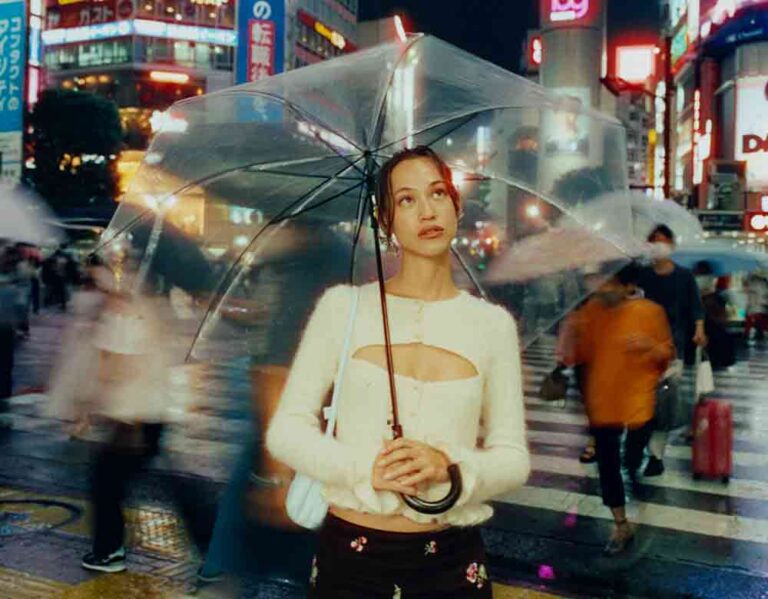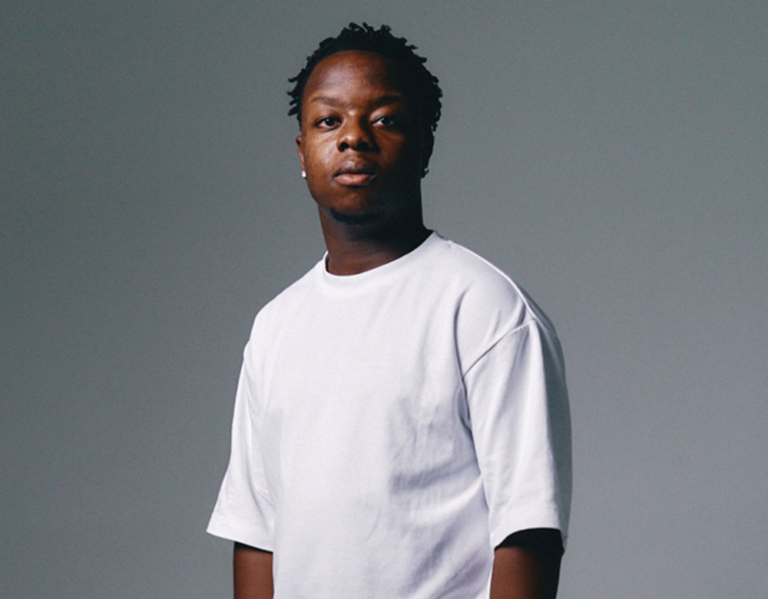Arthi Nachiappan, DJ, Dancer & Journalist, London

Can you start by introducing yourself and telling us a little bit about what you do?
I’m Arthi Nachiappan and I’m a DJ, dancer and journalist based in London.
Great. Up top, what are some achievements in your career that you’re particularly proud of?
Good question [laughs]. With regards to DJing I’ve got an event called Arthi Hard, which I set up with my friend and former agent Tremayne, and Kiran, who is our marketing mastermind. The event basically brings together my love of dance and DJing, making an inclusive and fun space for people to enjoy both. Bridging the gap between different creative forms is really important to me, and the fact that we did that event and that it now has a community of people developing around it is one of my favourite things I’ve done in my career.
Where is it based and how can we find it?
The last event we did was Jazz Café in December. We don’t have one set space for it, it moves around different London venues. We’ll bring it back later this year, but probably in a different way. I probably can’t talk about that yet…
"Bridging the gap between different creative forms is really important to me"
Got it. No spoilers. So, how did you start getting into DJing and dance, and at what point did you decide to blend the two together?
Dance came first. I’ve been dancing since I was around 15 – basically, since I’ve been old enough to cycle to classes myself. I did a lot of different styles and was absolutely enamoured by it. The year before I went to uni I started to take it more seriously. I did a lot of training in Pineapple Studios in London, and then did choreography at uni and what not. During that year out before uni, I was choreographing for a dance competition for St George’s Uni in London, and this DJ – DJ Razz – was mixing the music for us and he showed me the software. Immediately I wanted to get involved and be able to do it myself. So I started taking lessons at London Sound Academy, and kept that up as a hobby on and off throughout uni. In 2019 I decided that I wanted to take it more seriously, so I started entering competitions to warm up for artists that I loved. Then one thing led to another. I never expected to make work out of either of those things. I thought they would be just passions – not necessarily professions.
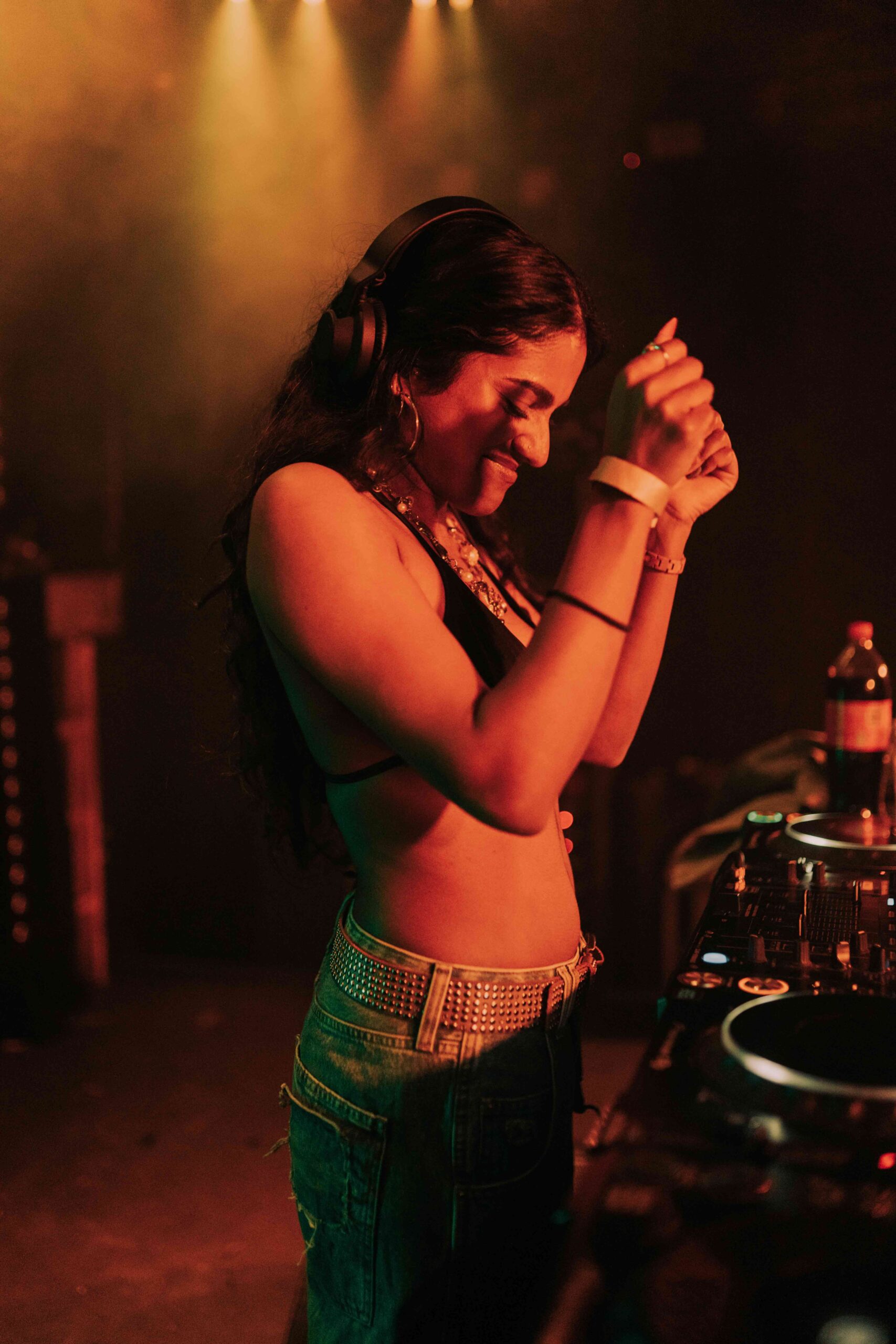
When things started to get professional – and you had moved to London by this point – how did you find London starting out? And, I guess more generally, how does anyone get the best out of London as a creative?
I feel like people really don’t clock just how big London is sometimes. In London there will be five nights targeted at the same group of people, or the same scene, all happening on the same Saturday. The actual scale of London is crazy to me, and the amount of opportunity that comes with that for creatives is insane. It’s great in that sense, but it’s also very overwhelming. You constantly feel like you should be at this event, meeting these people – the weight of all the things you feel that you should be doing can become a bit of a burden sometimes.
Yeah. London is so vast. If you’re looking for opportunities there’s so much to find, but you also have to be actually organised to stay on top of it.
I totally agree. I think it’s also, like, when you try and make the most of it all you can make it harder for yourself. When you’re constantly grinding, it’s much harder to stay inspired because you’re constantly on the hamster wheel. There’s a lot of pressure as a creative to have enough space to be creative – sounds so obvious [laughs].
How do you manage to stay creative and inspired whilst working all the time?
The fact that I do different things really helps me. When I focus on one thing I get quite existential. It makes me lose inspiration quite quickly. Switching it up keeps my energy for each thing because it feels like a refuge from something else that I’m working on. Then it also gives a bit of space from that other thing to regenerate. I haven’t quite got the balance right yet.
Your work spans across three different industries but they all require you, at times, to be on camera. The range of your career is really emphasised by the fact that we can see you being, for example, correspondent for a national TV news channel during the week and DJing at Boiler Room on the weekend. How do you deal with the emotional toll of your work being so public, across the board?
With the toll of being publicly seen, if you’re a sensitive person – which I am – it can be difficult to switch off and understand that things are not personal. I get a lot of comments about the work I do. Sometimes it’s not even personal, more just like I represent something and people are expressing that they don’t like that. Or I’ll get comments on videos of me DJing that are like, “Look at the state of DJing now.” Basically I try not to take it personally any more, because a lot of the time it’s more just something someone wanted to say – and it could have been on a video of me as easily as someone else.
Another thing I’ve found – as a hack, to handle it – is to not feel like you always have to put your heart into everything publicly. You obviously have to care, but sometimes it’s a job. Say, I go do my radio show, I’m really tired and I don’t really want to talk to anyone… I can talk in the way that I’m actually feeling, or say more impersonal things about the songs. I can just make it work for me. You shouldn’t have to force emotions every single time, you’re a human being. I think it’s important to give yourself that grace. You can give people what they need without emptying all of your resources in the process.
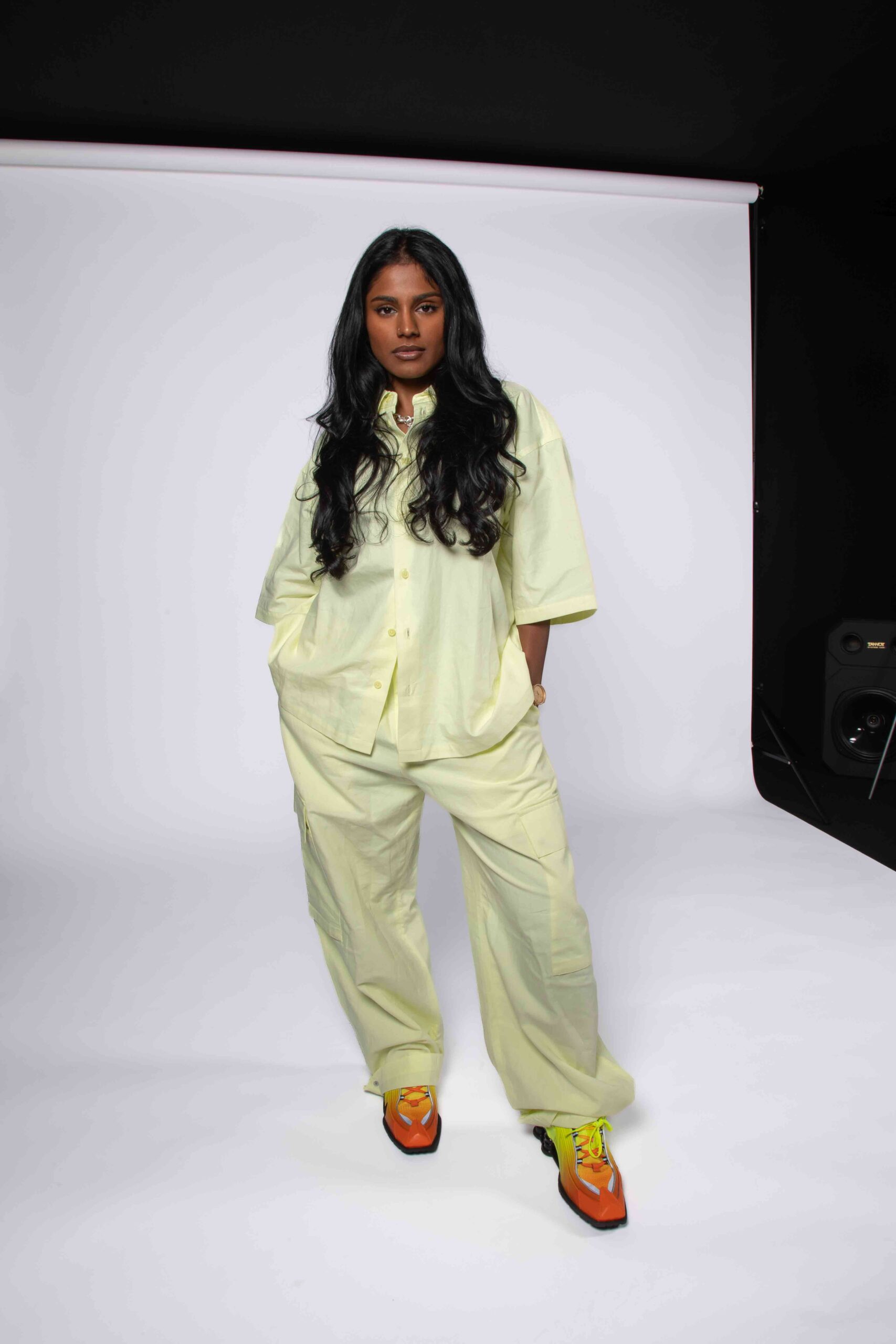
Inevitably people don’t see, or perhaps understand, the different kinds of work that happens behind the scenes.
Exactly. For example, if I’m creating a line-up, it’s not just me. There’s so many other people with equal involvement, equal ideas generation. More experience and expertise, who I’m really reliant on. I think people don’t realise that what they’re looking at is often the output of a team. Teamwork really is that invisible thing that people don’t see.
"Showing appreciation and bonding... keeps my love of creative work going."
Is there any piece of advice or set of principles in your work?
I would say: always ask for help, and show appreciation. By asking for help, you make yourself vulnerable. I think people respond well to that, because everyone’s experienced barriers getting into creative work. People might not always have the time or capacity to, but you can never go wrong if – politely, and not in an entitled way – you reach out and ask for help. In the past, I’ve felt really surprised and touched by just how open people have been – very busy people – to take the time out for a call or to message me back. And I’ve asked about everything. What my fee should be as a DJ, is it better to go with or without management, having an agent. All of these things… Whenever people have asked me, I wanna be honest and help them, because I know how valuable it is.
And then showing appreciation. If you see someone who is ‘successful’, quote unquote, you might think, “Surely they know how amazing they are and they don’t need me to tell them that”. Or that it might even seem patronising to tell them! But I actually don’t think that’s true. People need constant feedback and appreciation, and no one gets enough of it! And that’s not an interaction where you necessarily want anything from them… It’s not transactional. But those moments keep me feeling inspired. Showing appreciation and bonding with people on that basis really keeps my love of creative work going.
What would you say to young people looking to pursue similar things to you in their career?
Do things in a way that works for you, because that is going to be the only sustainable way to do it. For example, I don’t really like the concept of networking. Sometimes I feel quite jarred when you go to a “networking” event and the reason that everyone is there is just to network. I think it sits odd with quite a lot of people, because it can feel disingenuous – even though we are networking, all of us, a lot of the time. What I’ve realised is that I have been networking in ways that maybe I didn’t realise were networking, like where I try and collaborate with someone – like making a song, or playing at each other’s events, or messaging someone to say that you love their work. A lot of that stuff technically is networking. So, there are these ideas of how we promote ourselves and build our careers in the industry – don’t feel like if those methods don’t resonate with you that you don’t have a chance at success. Just think, how can I make that work in a way that doesn’t feel jarring to me?
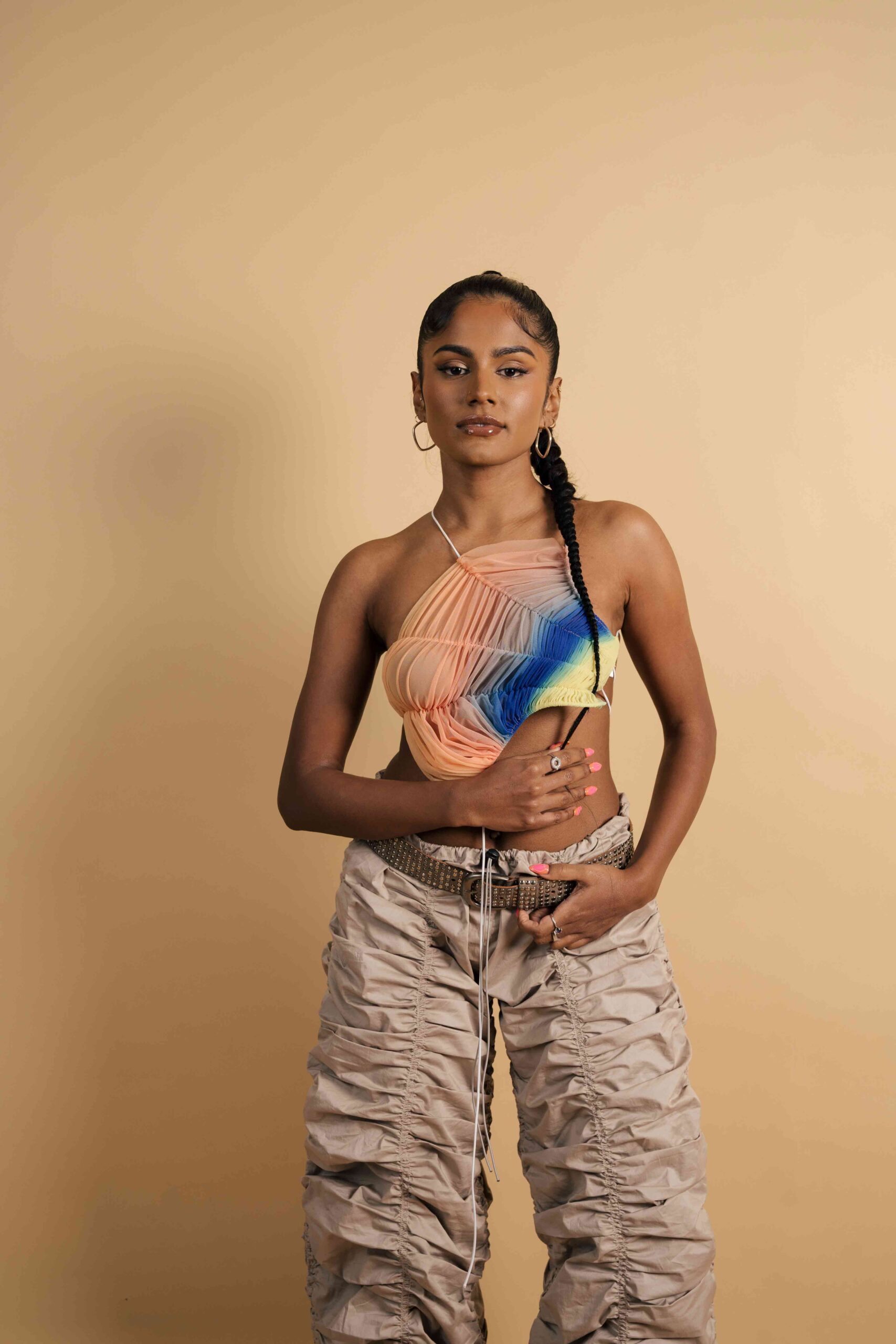
What are you looking forward to? What’s next?
I’m actually about to announce that I’m doing a residency at Phonox! It’s going to be every Saturday in April – really eclectic lineups of people that I love, but that you might not usually see together. It’s going to bring together my love of so many different sounds. I’m going to do a 6-hour set, which I’ve never done before. I’m really excited – at the challenge of it, at it being a culmination of a lot of things I love – you know, if people resonate with that it’s going to be the ultimate satisfaction for me. I also love Phonox – the sound is incredible. I can’t imagine anywhere else that I would want to do this more.
"No one necessarily should care about your work. It’s up to you to give them a reason to."
Are there any skills that you’ve learnt in one area that you’ve – maybe surprisingly – been able to apply to a different area of your career?
With journalism, I’ve learnt that you cannot rely on people wanting to engage in your work. In a lot of the journalism that I do, we are packaging it for people who might not care about the topic at all, and our job is to tell people why it’s important and worth engaging with. That’s helped me in my music, because, as an artist, you’re inclined to think, “Well, this is so personal to me, and so important – why wouldn’t other people be interested?!” And journalism has helped me to check that and think, “Well, why should they be interested?” [laughs]. No one necessarily should care about your work. It’s up to you to give them a reason to.
Hero Image: Max Anderson
Image 02: Sophia Carey
Image 03: Brennan Paul
Image 04: Jay Sentrosi
LATEST THAT MAY INTEREST YOU


